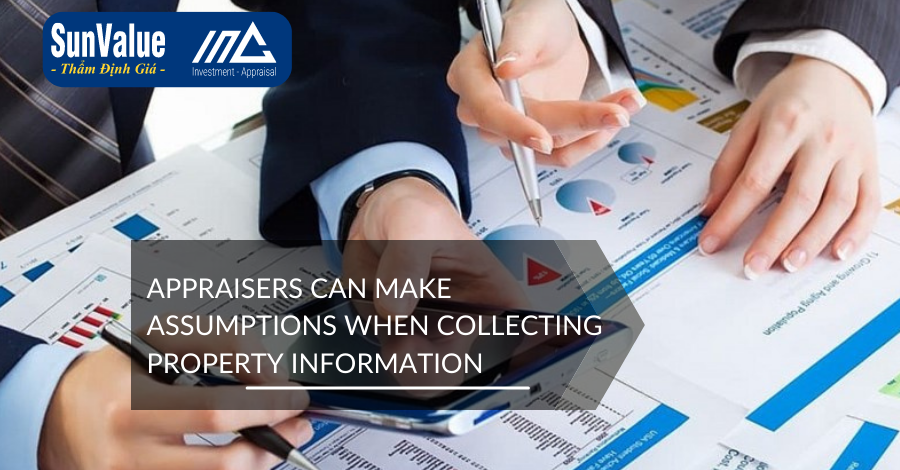APPRAISERS CAN MAKE ASSUMPTIONS WHEN COLLECTING PROPERTY INFORMATION
In the process of information analysis, the appraiser can make assumptions about the limited and uncertain information collected that cannot be overcome.
The Ministry of Finance is collecting comments on the draft Circular stipulating Vietnams valuation standards on the collection and analysis of information on appraised assets.
According to the draft, based on the valuation purpose, the basis of the valuation value, and the availability of data and information, the information collectors collect information by the valuation method. estimated price selection.

For some asset groups, one or more of the following information may be collected:
For real estate (land; housing; commercial real estate; industrial real estate; resort real estate..), collect information on the Location and form of real estate (on legal documents such as certificates of land use rights, ownership of houses and other land-attached assets, detailed planning maps of the area... and actual status quo); infrastructure (water supply and drainage, telecommunications, electricity, roads, parking areas); landscape, surrounding environment; distance from real estate location to public transport locations, shops, schools, parks, hospitals, main roads...
For movable property being machinery, equipment, means of transport, supplies, goods... new and unused: Collecting information on legal characteristics (if any), data on indicators and economic-technical characteristics, year of manufacture, manufacturer, origin, quantity, brand, use, size, material, payment conditions and associated services (maintenance mode, warranty, installation, replacement equipment attached...).
For movable property being used machinery, equipment, means of transport, etc., additional information shall be collected: owner, year of use, the current state of use, level of wear and tear, and level of movable property. Consumption of materials, fuel, actual capacity, and other characteristics affecting the value of the appraised property...
For financial assets (Government bonds, corporate bonds, other bonds, drafts, promissory notes, bills, certificates of deposit, fund certificates, warrants, covered warrants, right to buy shares, depository certificates, derivative securities, loans and receivables, common shares, preferred shares, debt...): Collect information related to the legality of the property; market information, income from financial assets; tax policy, fees, charges and trading conditions of assets; interests and benefits derived from holding assets, the liquidity of financial assets.
According to the draft, information analysis is the process by which the appraiser synthesizes, considers, and evaluates all collected information for the valuation process, thereby assessing the impact of various factors. factors to the valuation and the final appraisal results.
In the process of information analysis, the appraiser may make assumptions about the limited and uncertain information collected that cannot be overcome but must ensure that these assumptions are valid. reasonable, rigorous, well-founded, and suitable for valuation purposes.
The collected information is analyzed according to the following content groups:
Analysis of basic information about the appraisal: the customer appraised the price; valuation purposes; price appraisal time; legal grounds for valuation; valuation basis.
Analysis of information on legal, economic, and technical characteristics of appraised assets.
Analyze market information; current status and prospects of supply and demand, market participants, trading conditions, preferences and dynamics of potential buyers - sellers; alternative or competing properties; changes in policies and laws; economic, social, scientific, and technological development and other factors affecting the value of the property...
Analysis of the best and most effective use of assets (if any).
Related article
Send request a quote
Please share with us some of your information, we will contact you upon request



 VI
VI